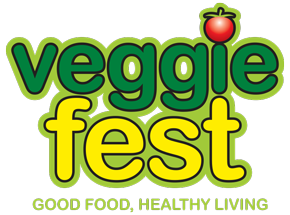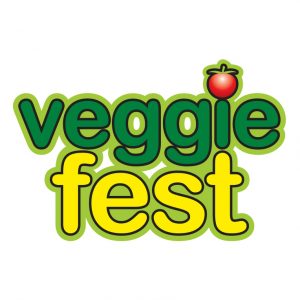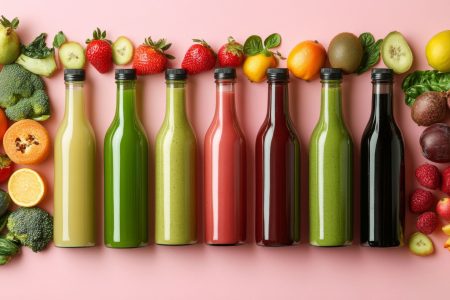In May 2019, the Veggie Fest website team sat down with Dr. T. Colin Campbell, the American biochemist whose China study research has changed the way doctors, scientists, and the public think about food and nutrition. He is the Jacob Gould Schurman Professor Emeritus of Nutritional Biochemistry at Cornell University, author, researcher, and rock-star of the vegan world. Dr. Campbell’s advocacy of a low fat, “whole foods, plant-based (vegan) diet” has made him a celebrity in the alternative health and food industries. This interview gives a “taste” of what’s to come: Join us on Saturday, June 29 from 1-2:30pm at the Science of Spirituality International Meditation Center when Dr. Campbell will speak on the topic, “Health ~ Nutrition First, Pills Second.”
Q: We are honored to have you come and speak to the Chicagoland community at our beautiful, newly built meditation center. As you know, we have been championing health and wellness through the veg diet for many years. Today, you are a luminary in the world of vegetarian health. Your research from the China study—which you are best known for—has moved the needle steadily toward veganism in this country. Our first question is, Were you a vegetarian when you started the China study?
Dr. Campbell: First I have to clarify, what is the China study? Basically, it was a study in China to determine why cancer was so common in certain parts of China and not in others. The idea for the study began in 1980-1981 between myself—I was working at Cornell—and Chen Junshi, Deputy Director of the Institute of Nutrition and Food Hygiene at the Chinese Academy of Preventive Medicine. [They were later joined by Richard Peto of the University of Oxford, Professor of Medical Statistics and Epidemiology and Li Junyao of the China Cancer Institute.]
It turned out to be the first research project between the United States and China. We organized a big survey of 130 villages across the country. We collected all kinds of information, from blood samples, urine samples, food samples, and so forth, and then spent the next 8 – 10 years recording this information. Finally, in 1990 it was released to the press for the first time in the New York Times. It received a lot of attention.
In any case, that study was undertaken as a scientist to find out whether in the human population we would be seeing the same thing that I had already been working on for about 20 years at that time in the lab: My work actually revealed some very exciting information, from my point of view and from the scientific point of view, during the 1960s, 70s, and 80s. It was very provocative, but that was an experiment on animal studies, and so I wanted to know the extent to which that information applied to humans. This was an opportunity and is why the China study was done.
It turned out that what we learned in the China study was consistent with what I had been learning in the laboratory. In the lab, data arose from work I started in the Philippines. We won’t get into that here, but it reveals something really important, and I will just mention a couple of ideas: One is that animal protein is not as great as a lot of people may think, and the second idea is that we can turn on cancer with the protein of cows’ milk, of all things, and then we can turn off cancer by replacing it with plant protein. That was very provocative.
The China study was completed and released in 1990, and in 2002 at the urging of my wife, I decided to write this information in a book for the public, in collaboration with my son, Thomas M. Campbell, II. The book, The China Study: Startling Implications for Diet, Weight Loss, and Long-Term Health came out in 2005. Although the book has the title of the China study, only one of its 18 chapters refers to the actual data in the China study, and the other 17 chapters have to do with the science behind this idea. There is also some discussion of the reaction from the general science community. The book has now been translated into 48 languages around the world.
Now, to answer your question about whether or not I was a vegetarian when I began this research, I was not. I was raised on a farm, milked cows before I went to college and graduate school at Cornell University. My research was actually focused on the idea that the more animal protein we consume, the better our health; that’s what most everyone thought, and I did, too. My doctoral dissertation was based on that, so for me, all of the information that came my way—first, in the 60s in the Philippines and in the 70s in my lab, and then in China—all that work substantially questioned my own belief.
 I finally arrived at a point where eating a plant-based diet was very important and is the healthiest kind of food we can eat. I’d like to add one more word, and that is “whole.” When we are consuming whole plant-based foods without all the added oil and sugar, that’s the ideal diet. Now, we know that through this diet, we can cure heart disease; we can reverse Type II diabetes; we can do a lot of amazing things by taking this approach.
I finally arrived at a point where eating a plant-based diet was very important and is the healthiest kind of food we can eat. I’d like to add one more word, and that is “whole.” When we are consuming whole plant-based foods without all the added oil and sugar, that’s the ideal diet. Now, we know that through this diet, we can cure heart disease; we can reverse Type II diabetes; we can do a lot of amazing things by taking this approach.
This approach is the exact opposite of what most people were doing (and eating). This new approach became associated with the word “vegetarianism.” My family and I started to change our diet around 1980—as the information began to unfold—and it took us about 10 years to gradually become completely vegan. By 1992-1993, we were a 100%, and the rest is history.
Q: It sounds like this has been a long journey for you, being raised on a farm and considering meat-based protein as the optimal food for health. You really listened to the research that came back from your studies, however, and made changes accordingly. However, some people in the medical community are still resisting the findings in these studies.
Dr. Campbell: Not as many as some might think. There was one well-known reaction written early on when the book first came out. It was written by a young woman who was an English major; she had no training in medical research or nutrition. She later apologized for some of the things she wrote. Regarding resistance in the medical community, yes. One of the reasons there was resistance to this study is that no medical school in the USA actually teaches the science of nutrition which is fundamental to this study.
Also, physicians are not compensated if they wish to talk about nutrition to their patients. It’s difficult for them to get compensated for their services under the Medicare program. There are 130 or so medical specialties, which tend to determine what positions will get paid and how much. None of those 130 medical specialties is called Nutrition. For these reasons, nutrition has been left out of the discussion—both professionally and publicly—for decades and for more than a century.
I like to talk about the science of the nutrition—with the emphasis on the word “science”—because that better reveals what we ought to be eating. It’s been 63 years since I started my research, and the information I’ve found has a very profound effect not only on our personal health but on our planetary health, as well.
Q: So would you say that the doctors and scientists in China and England accept the findings of the China study—and its message about the importance of nutrition in combating disease—or is it pretty much the same everywhere, that the study of nutrition is still undervalued in the medical community and under compensated.
Dr. Campbell: It is still under-compensated and undervalued. I think that’s a fair statement. Although, real movement is starting to grow. I have spoken to over 200 different medical schools and medical venues; I have actually given about 900 lectures. In some of the more recent lectures I’ve given in medical communities with up to 1000 clinicians, if you will, I’ve received standing ovations when I am introduced, let alone when I’ve finished. I’m very pleased with how the medical community is starting to take this on.
I’m writing another book right now, explaining why it is that nutrition is ignored in medical communities. That itself is quite an interesting story. It has to do with the way we look at biological facts and the way we study them, especially now in nutrition. From a scientific point of view, nutrition is what I call a “wholist” phenomenon. It involves countless different kinds of nutrients and other chemicals in food interacting together as we consume them, and as they subsequently metabolism in our body, and as they either cause health or cause disease. Nutrition is that kind of science; in contrast, the science of medicine and medical research is reductionist.
What I mean is, when most people think about nutrition, they tend to think about individual nutrients and what they do or don’t do; of course, certain elements of our industry tend to promote that idea. In medicine, we’ve been trying to understand the use of single chemicals. We call them drugs, if you will. We think about individual diseases, prescribing this drug for that disease. In reality, however, that is not nutrition. Nutrition is where everything is working together in a very natural way.
I’d like to think that what I’m talking about is really what nature has created for us. All we need to do is get our heads out of the way and let nature work naturally. These are two vastly different sciences, if you will: One being the science of the medical community, and the other being the science of nutrition.
Q: Would you like us to mention your upcoming book, the title and where it will be available?
Dr. Campbell: I haven’t settled on a title, yet, but as a hint, I’m thinking it will be called Nutrition and Justice for All, published by BenBella Books in Dallas, Texas. It explores this question, why nutrition has been ignored as a science and conversely, where did nutrition as a science go off the rails. It’s a fascinating story, and I tell it in the context of my own career, the parts of my career where I ran into a lot of resistance to the very idea of nutrition.
My second book, Whole: Rethinking the Science of Nutrition, is an elaboration of the science used in the China study and was published in 2013. It has done really well and was chosen as a New York Times bestseller.
Just recently, a month or two ago, a journalist from The Washington Post called me to say that she was attributing to me the phrase “whole food, plant-based,” which is true. I came up with that phrase in the 80s, and now it’s going all around the world, traveling far and wide. That is encouraging.

Q: When we conduct interviews or write in the blog section of the VeggieFestChicago website, we are always using the term “whole food, plant-based diet.” We didn’t realize you coined that phrase, but thank you!
Dr. Campbell: During 1980 or 1981, I served on a committee of experts and other scientists to determine which kind of research funding should be granted. Scientists need to have money to do research, and they apply for funding from the National Institutes of Health which is made up of 28 different institutes, and one is in cancer. In any case, I was on this committee with about 15 other cancer researchers [the cancer area is the other hat I wear]. I was the only one who had background in nutritional biochemistry. The others had backgrounds in immunology, pathology, and so forth. At that time, there was interest arising in something called antioxidants. I was asked to look into it and offer a rundown on what I thought about antioxidants as a research area for cancer. Of course, now we know that antioxidants have a major effect on cancer.
When I was getting my comments in order for the next meeting, I knew at that time this suggested the possibility of vegetarianism. I didn’t know the term veganism at the time. However, I did not want to talk about vegetarianism because in the professional communities, it was not an accepted idea. That is when I came up with a term more akin to science, “plant-based.” Later, I added the word “whole.” All of this came about, in part, because I didn’t want to use the word “vegetarian.” I wasn’t myself, a vegetarian, at the time.
Q: That is truly fascinating. We hear this term used consistently by doctors who encourage a vegan diet without using the word vegan.
Dr. Campbell: Well, the words “vegetarian” and “vegan” are still considered pejorative in the medical community. About 90 percent of vegetarians today are still using dairy, and some still use cheese in their diets: This means that the nutrient composition of the vegetarian diet is not much different from meat eaters. It’s a little bit better, but not much. It turns out, as well, that the average level of fat and sugar in a vegetarian and vegan diet are the same as for meat eaters. As a result, although we definitely see less heart disease and less cancer among vegans than meat eaters, the effect is not nearly as great as it could be.

Q: Our readers might like to know when you sit down with your family for a meal, what do you like to eat?
Dr. Campbell: There are tons of possibilities and cookbooks out there. Our daughter-in-law, LeAnne Campbell, wrote The China Study Quick & Easy Cookbook: Cook Once, Eat all Week with Whole Food, Plant-Based Recipes. Our daughter, Kim Campbell has two cookbooks out: The PlantPure Nation Cookbook and The PlantPure Kitchen: 130 Mouthwatering, Whole Food Recipes and Tips for a Plant-Based Life. The most important point is that we eat whole foods, plant-based, which include vegetables, fruits, grains, nuts, seeds, and legumes. We always include spices and herbs in our food which enables us to retain the various ethnic cuisines from around the world; these foods are mostly attributed to the spices and herbs used in their region.
Q: This has been a fascinating interview. We at Veggie Fest Chicago would like to thank you, Dr. Campbell, for giving us a scientific lens around this question of nutrition. Our final question today is, What gives you hope?
Dr. Campbell: Change is occurring in the medical system, and what I see arising now is a real interest in nutrition. We now have steady evidence that the food we choose to eat has a major impact on the environment and is a major cause of health or disease. If we were to choose plant-based foods, we would benefit our health and reduce global warming. The truth is, if we don’t change to a plant-based diet, we might not survive for another 100 years. It’s that serious.
I’d like to leave you with this idea: We need to practice “wholism.” When we think about how nutrients work in the body and tissues, we begin to understand that nature created an infinitely complex system of highly integrated inter-reactions, almost like a symphony, so the basic question is how did that happen? My colleagues have been able to reverse the heart disease of people who were seriously ill. We can use the same approach to reverse type II diabetes, and we can lose weight—if it’s done right. Just the fact that we have this information gives me hope. We just have to get it out there.
Interviewer: That is another reason why you are coming to speak to our community. It gives us hope to hear you talk about the changes that need to be made, and that are being made, because of the work you’ve done and because of the commitment you’ve shown throughout your entire life. Dr. Campbell, thank you for being so generous with your time this morning.
-Kathryn Kruger for the Veggie Fest Team







